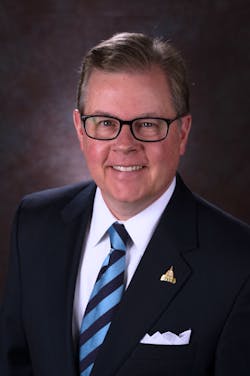Congress Can’t Forget Airports This Time
The American travel industry has weathered its share of crises: the terror attacks on 9/11, SARS, H1N1, MERS, the Great Recession, and Ebola. But we have always climbed our way back thanks to the strong support of passengers and local communities who understand the important role their airport plays in driving the economy.
This latest shock – the coronavirus – may be the worst we have ever seen. Passenger travel at U.S. airports is expected to drop by nearly 70 percent as people cancel their travel plans and take other necessary precautions to guard against the spread of COVID-19, the novel coronavirus infecting people around the world. This not only impacts airports, but airport workers and their local communities.
This extreme caution is the right step to limit the number of people who contract this virus. Millions of Americans have dramatically curtailed their ordinary routines in order slow the spread of this virus. Schools closed. Offices shut. And just about everyone is adopting more sanitary and social distancing habits to prevent themselves and their neighbors from getting sick.
Airports have stepped up their own efforts to maintain the highest-possible cleanliness standards. They have doubled and tripled cleaning shifts, particularly in bathrooms and other public spaces where passengers gather. They have placed hand sanitizer throughout their facilities and taken steps to help passengers and employees keep their distance.
This dramatic change in the public’s collective behavior has leveled a serious blow to the global economy. Perhaps no industry has been harder hit than travel. The spring break travel season is usually the one of the busiest extended periods for airports, airlines and hotels. But this necessary response to this outbreak has resulted in a steep, unexpected drop in revenue, as we take increasingly aggressive steps to keep passengers and workers healthy.
Congress and the White House have shown leadership by agreeing to provide economic relief for the individuals and industries hardest hit by this abrupt slowdown of the American economy. But unlike the aftermath of 9/11, when airlines were the only beneficiaries of federal help, lawmakers need to extend that relief to the millions of other individuals and businesses struggling to stay afloat.
We are all in this together, and we will only get through this as a whole. Airports, for example, are closely tied to the airlines in this evolving crisis. Airports are just as dependent on passenger revenue as the airlines, whether it comes from the food court, the parking garage or the modest user fee all air travelers pay, known as the Passenger Facility Charge (PFC).
Based on our projections, U.S. airports are now expected to lose at least $13.9 billion in 2020. This includes a $7.8 billion drop in operating revenue and a $1.1 billion fall off in PFC collections. We fully expect those numbers to get worse, as bookings decline and we digest the long-term implications of this outbreak.
The immediate shock has already strained airports’ operating budgets. Airport directors are a creative group, and they have taken immediate steps to manage this abrupt decline in revenue related to the falloff in traffic. But there are limits to that belt-tightening. It won’t take long before they will have to start making very hard choices about personnel, services, infrastructure, and payments due.
Airports are like cities within cities. They are a workplace for hundreds and often thousands of people every day. Thousands more pass through as travelers. They are the critical backbone of our country’s aviation system, and they are a massive driver of economic activity for the communities they serve. We have made every effort to remind Washington of that fact in our conversations with the administration and Congress.
We will get through this perilous stretch, just as we have survived previous challenges. But airports need help navigating this period of grave uncertainty. And I am confident we will all bounce back stronger than ever when we do.
Kevin M. Burke is President and CEO of Airports Council International – North America.
About the Author

